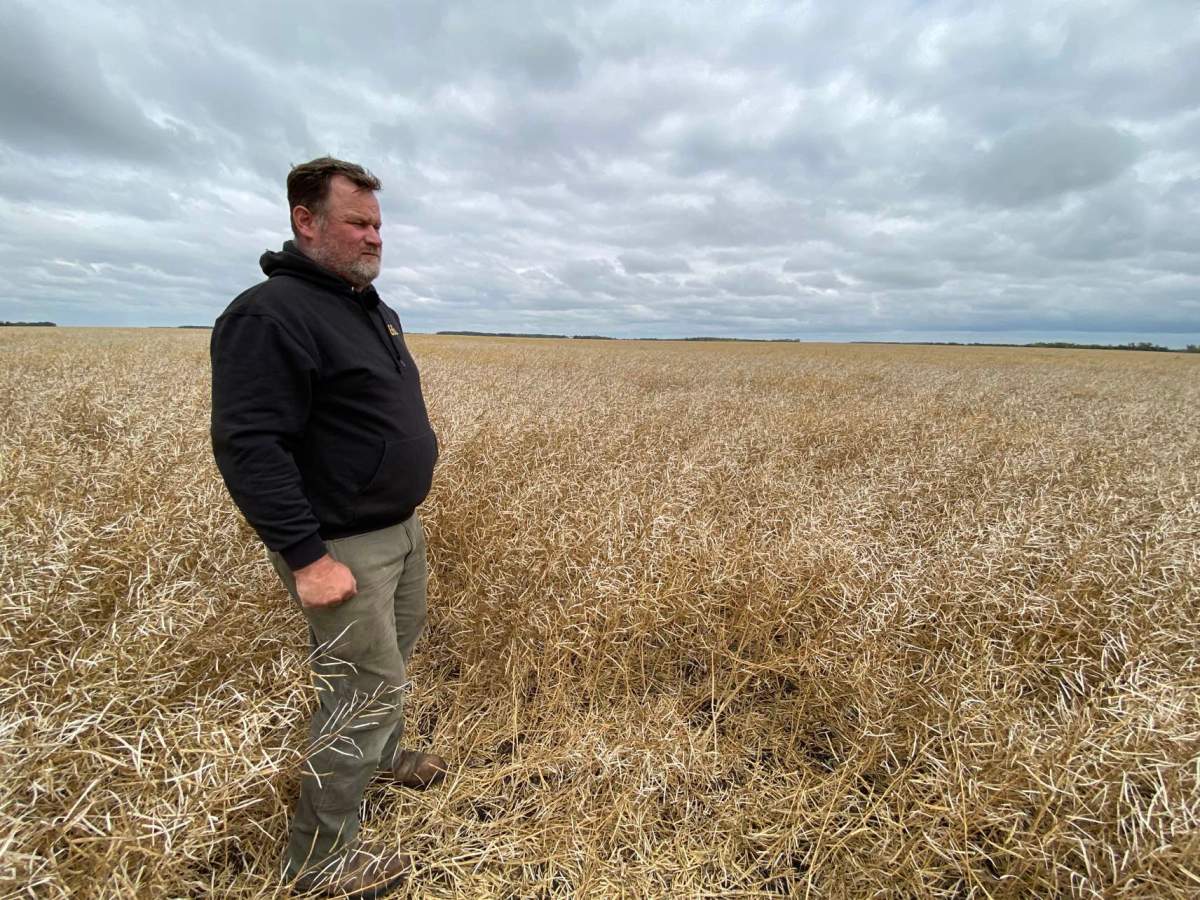With harvest underway across the province, farmers north of Winnipeg are holding their breath to see exactly how bad the hail damage from last week’s storm is.

In St. Andrews, farmer Curtis McRae is assessing his canola fields before he begins harvest Tuesday night.
In just 15 minutes, two of his fields were nearly decimated and caused almost $300,000 in damage, but it’s not just the potential loss of money he’s mourning.
“It’s not the financial hit that’s the big one, it’s the emotional hit of seeing what a crop could have been and then losing it,” McRae told 680 CJOB.
Where one of his fields could have yielded 50 to 60 bushels per acre, after last week’s hailstorm he’ll be lucky to get 15.
Last Thursday evening, a powerful hailstorm with strong winds ripped through the northern part of Winnipeg and communities east of the city.
Environment Canada reported golf ball-sized hail, 20-30 millimetres of rain and 90 to 95 km/h winds, though communities like Selkirk, just northeast of St. Andrews, saw around 110 millimetres of precipitation.
McRae has the option to claim insurance on his fields, which is becoming increasingly frequent for Manitoba farmers as droughts and floods become a regular occurrence, but is holding out hope his yields elsewhere will even out what he may have lost.

Get breaking National news
“Ideally if our other fields that didn’t get smacked with hail outperform, then there’s a chance we can get by without getting a crop insurance claim in,” he said.
Manitoba Agricultural Services Corporation, which handles crop insurance, says they’ve received around 1,900 hail claims this year, higher than the last two years combined.
Since the storm last week, MASC has seen around 200 hail insurance claims.
“It’s keeping us on our toes,” said David Van Deynze, chief product officer at MASC.
Farmers can buy up to $400 an acre in hail coverage for conventional crops, and payment is dependent on the level of damage, but Deynze said crop insurance is crucial these days as the price of production goes up.
“It’s never great to have a claim but certainly when they do and they do suffer that loss I’m sure there’s some comfort there they have that insurance to help them get through the year and allow them to farm again another day,” he said.
For McRae, however, the white, brittle canola means large purchases for his farm will be delayed another year while he salvages what he can.
“Not only is farming my job, but it’s my life. It’s — you know, if you had a prized flower in your garden bed and the neighbour’s cat destroyed it, it’s almost the same scenario except this one also feeds my family.”
— with files from Katherine Dornian and Sam Brownell








Comments
Want to discuss? Please read our Commenting Policy first.